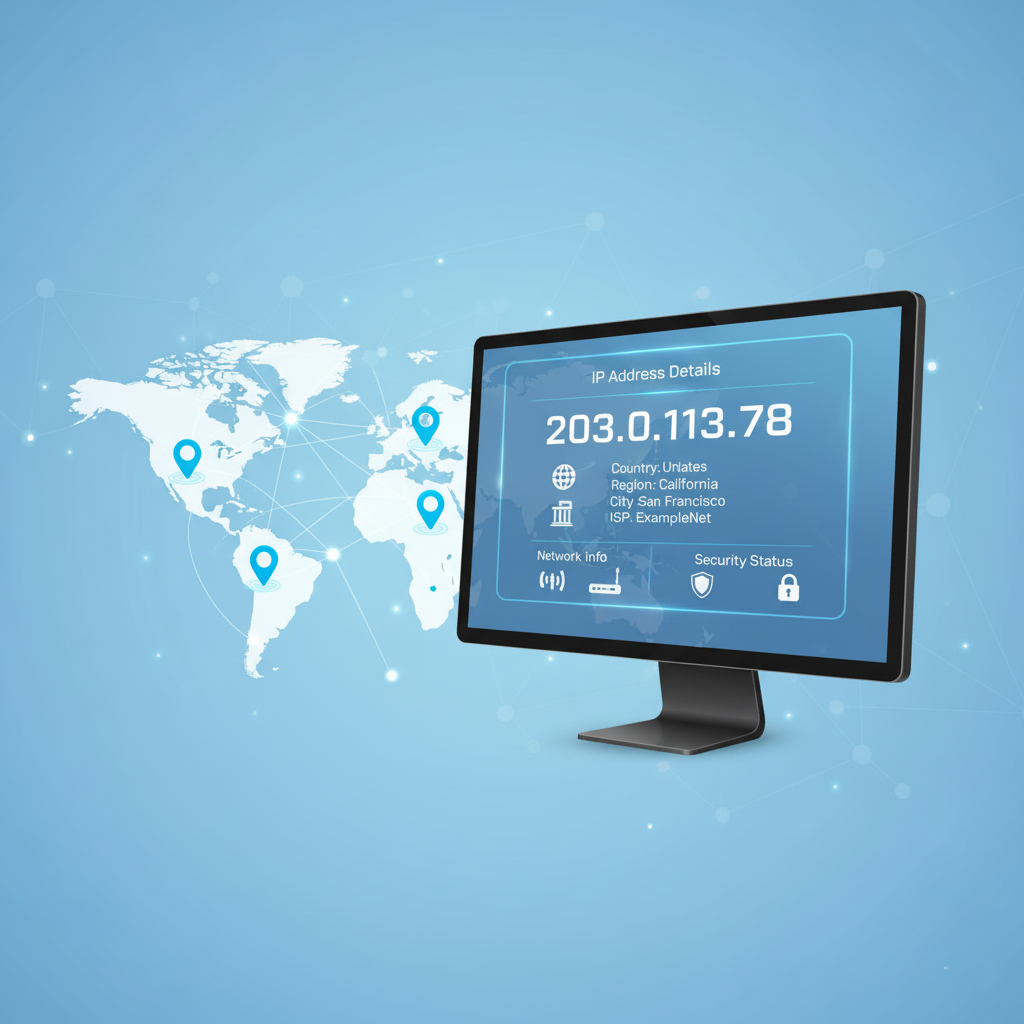
IP Lookup
Created on 17 October, 2025 • Checker tools • 88 views • 2 minutes read
An IP lookup is a digital technique for discovering information about a specific IP address, such as its geographical location
IP Lookup: Understanding and Using IP Address Tracking Tools
What Is IP Lookup?
An IP lookup is a digital technique for discovering information about a specific IP address, such as its geographical location, internet service provider (ISP), and potential security risks. Used routinely in cybersecurity, digital marketing, and website analytics, IP lookups help identify where traffic comes from, protect networks, and enhance user experience.
IP Address Explained
An IP (Internet Protocol) address serves as the unique identifier for a device on a network. It comes in IPv4 (e.g., 192.0.2.1) and IPv6 formats (e.g., 2001:0db8:85a3:0000:0000:8a2e:0370:7334). Each time you connect to the internet, your device is assigned an IP address, which enables data to be routed correctly.
Types of IP Addresses
- Static IP: Remains constant over time, often used by servers and businesses.
- Dynamic IP: Changes periodically and is commonly assigned to home users by ISPs.
How Does IP Lookup Work?
IP lookup tools search through vast databases mapping IP addresses to location and network information. When you enter an IP address into a lookup tool, it queries global records and matching datasets to reveal details like country, region, city, latitude, longitude, and ISP.
Key Attributes Revealed
- Geolocation: The approximate location of the device (city, country, region).
- ISP Information: The company providing internet connectivity.
- Hostname: Sometimes the domain associated with the IP.
- Organization: Business details if the IP is registered to a corporate entity.
- Abuse Contacts: Who to notify in case of misuse or cyberattacks.
Applications of IP Lookup
Security and Fraud Prevention
Security teams use IP lookup to spot suspicious logins, block malicious visitors, and trace attacks. By cross-checking known threat sources or unusual geographies, organizations can swiftly take action against cyber risks.
Marketing and Personalization
Digital marketers leverage IP lookup to deliver regional content, optimize ads, or assess campaign reach. Knowing a visitor’s likely location allows for smarter, more relevant website experiences.
Network Management and Troubleshooting
Network administrators use IP lookups to diagnose access issues, verify user connections, and ensure legitimate traffic.
Limitations and Privacy Concerns
Accuracy Challenges
Although modern IP lookup is powerful, accuracy varies by region and data source. Mobile devices or the use of VPNs and proxies can mask true locations, making precise tracking difficult.
Privacy and Legal Compliance
Because IP addresses can be deemed personally identifiable information (PII), websites must comply with privacy laws like GDPR when using IP lookup tools. Ethical use includes clear policies and respect for user anonymity.
Conclusion
IP lookup tools are valuable for security, analytics, and marketing, providing key insights into online user behavior and network safety. By understanding how IP lookup works and using it responsibly, businesses and individuals can strengthen cybersecurity while respecting digital privacy.
Popular posts
-
GIF to BMPImage Manipulation tools • 583 views
-
GIF to WEBPImage Manipulation tools • 462 views
-
GIF-to-PNGImage Manipulation tools • 363 views
-
SHA-3/512 generatorConverter tools • 292 views
-
GIF to JPGImage Manipulation tools • 257 views